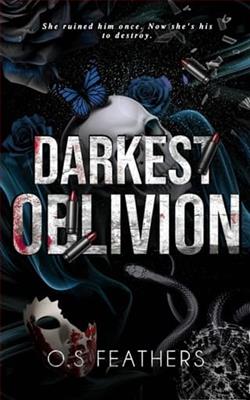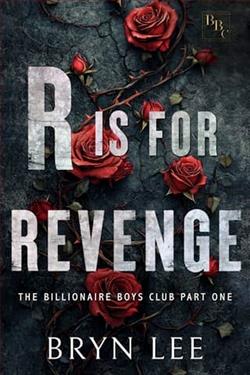Page 2 of Used Bratva Bride
Valeri sighs, and there’s a sadness in his eyes that makes me momentarily regret my harshness. “You’re too young to think like this, Mikhail. You think showing any emotion or doubt is a weakness, but it’s not. It’s human. Even leaders need to be human, or they risk becoming monsters.”
I bristle at his words, the implication that I could become monstrous unsettling me more than I want to admit. But there’s a part of me, perhaps a small, unguarded part, that wonders if he might be right.
We stand in silence for a few moments, the only sound the rustling of the leaves in the gentle breeze. It’s Valeri who breaks the silence, his tone softer this time, almost reflective. “When I was your age, I thought much the same.I pushed everyone away, built walls so high I almost couldn’t see over them myself.It took me years to realize that leadership isn’t just about control and fear. It’s about understanding, about connecting with those you lead. You can’t do that if you shut everyone out.”
His words echo in my mind as I consider his journey, the changes I’ve witnessed in him over the years. Once a stern, unyielding figure, he’s become more approachable, his leadership style evolving from rigid to inclusive. With it, his influence has grown, not diminished.
“Maybe you’re right,” I admit reluctantly, my gaze drifting to the horizon where the city sprawls endlessly. “I don’t know if I can change, Uncle. I don’t know if I want to.”
Valeri places a hand on my shoulder, his grip firm but reassuring. “You don’t have to decide all this now, Mikhail. You have time. Use it not just to prepare to lead but to understand the kind of leader you want to be.”
The sky darkens as we remain on the balcony, pondering Valeri’s words. Perhaps there is strength in vulnerability, a different kind of power in openness.
Valeri’s presence beside me is a solid, comforting weight as the city falls into the deeper shades of twilight. His words linger between us, stirring a mix of apprehension and quiet hope within me. As much as I resist the vulnerability of his suggestions, I cannot deny the respect and almost reverence I hold for him.
Unlike the others who often glance my way with hidden whispers of my father’s infamous legacy, Valeri treats me as just Mikhail—neither the son of a betrayer nor a future Bratva leader by default. His respect is earned, not given freely, which makes it all the more significant.
“Uncle,” I start, the word tentative as I grapple with the thoughts swirling in my mind, “I see the way you lead, the respect you command. It’s not just about fear with you; it’s about… something deeper. I find myself wondering how you balance it all.”
Valeri turns to look at me, his expression thoughtful, a slight smile tugging at the corners of his lips as if he appreciates the earnestness of my question. “Mikhail, leadership is much like walking a tightrope. Lean too much one way, and you rule by fear, losing the heart of your people. Too much the other, and you risk appearing weak, losing their respect and your grip on power.”
He leans back, the chair creaking slightly under his weight. “The key is balance. Yes, you need to be strong, decisive, but you also need to be fair. People need to believe in your leadership, believe that following you is in their best interest.”
I nod, absorbing his words, feeling the weight of their truth. “How do you know if you’re doing it right? Especiallywhen….” I pause, the shadow of my father’s fate looming over my unspoken words.
Valeri reaches over, placing a steady hand on my shoulder. “You’ll make mistakes, Mikhail. We all do. The important part is what you learn from them. Leadership isn’t about perfection. It’s about growth, adaptation, and most importantly, the courage to stand by your decisions.”
His reassurance offers a strange sort of comfort, but the doubt lingers. “What if my decisions lead to… consequences? Like Father’s?”
“Ah,” Valeri sighs, his gaze drifting toward the cityscape as if he can read the stories hidden within its shadows. “Your father’s choices were his own. His path need not be yours. You must forge your own way, learn from his errors, but do not let them define you.”
The air between us fills with the unspoken history of my family, the legacy of power and betrayal. It’s a burden I’ve carried silently, one that has shaped me in ways I’m only just beginning to understand.
“Remember, Mikhail,” Valeri says, his voice pulling me back to the present, “you are not alone in this. You have people who will stand by you, who believe in you. You have strengths your father never did. Use them. Be the leader he couldn’t be.”
His words strike a chord, a deep resonant note that vibrates through the core of my being. I want to be that leader, one who people will follow not out of fear, but respect and perhaps even loyalty.
As the night deepens around us, the stars twinkling into existence above, our conversation shifts subtly. We talk about strategies and future plans, Valeri offering insights and advice,each one a building block in my understanding of the path I must navigate.
“You have potential, Mikhail. Great potential,” Valeri says as we rise to head back inside. “And remember, true power is not taken, it is given. Earn it, and you will see just how strong you can be.”
His words echo in my mind as we walk back through the sprawling estate, the lights from the windows casting long shadows on the ground. I feel a mixture of apprehension and clarity, knowing the road ahead will be fraught with challenges but also realizing I have the tools to meet them.
The night ends with us parting ways at the door to my section of the house, Valeri’s final words a gentle reminder, “Reflect on what we’ve discussed, Mikhail. We’ll speak again soon. Good night.”
“Good night, Uncle,” I reply, watching him walk away, his figure a steady presence retreating into the distance.
As I close the door behind me, the weight of our conversation settles in my chest. There is much to consider, much to plan.
For the first time, the path ahead seems a little less daunting, guided by the promise of what I could become—a leader shaped not by the shadows of the past, but by the lessons learned and the choices made in the light of a new understanding.
Chapter One - Julie
As I walk down the long, elegantly carpeted hallway toward my father’s study, my heart races with a mixture of nervous excitement and trepidation. In my hands, I clutch the folder that contains weeks of hard work and dreams—Crafted Connections, my brainchild.
It’s a simple yet profound business idea: a small online platform that bridges the gap between local artisans and customers seeking handmade, unique products. This project, born from my love for creativity and a desire to support independent creators, feels like a tangible extension of my own aspirations.
Each step toward the study feels heavier than the last. I’ve meticulously researched the market, identified potential suppliers, and even set up a preliminary website. The numbers add up; the plan is sound. All I need now is a bit of financial backing and, perhaps more dauntingly, my father’s approval.















